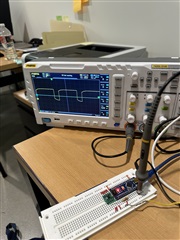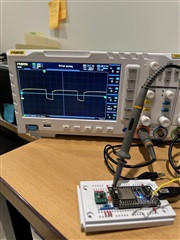Hi,
I am testing the TMP1826 with an ESP8266 host controller, but I am unable to get any response from the TMP1826. Running the same code with an Arduino Nano works and the response pulse is detected, but it will not work with the ESP8266. Here is my code, test circuit, and oscilloscope data with and without the tmp1826 connected.
Without tmp1826 connected:
with tmp1826 connected:
test circuit:
code:






